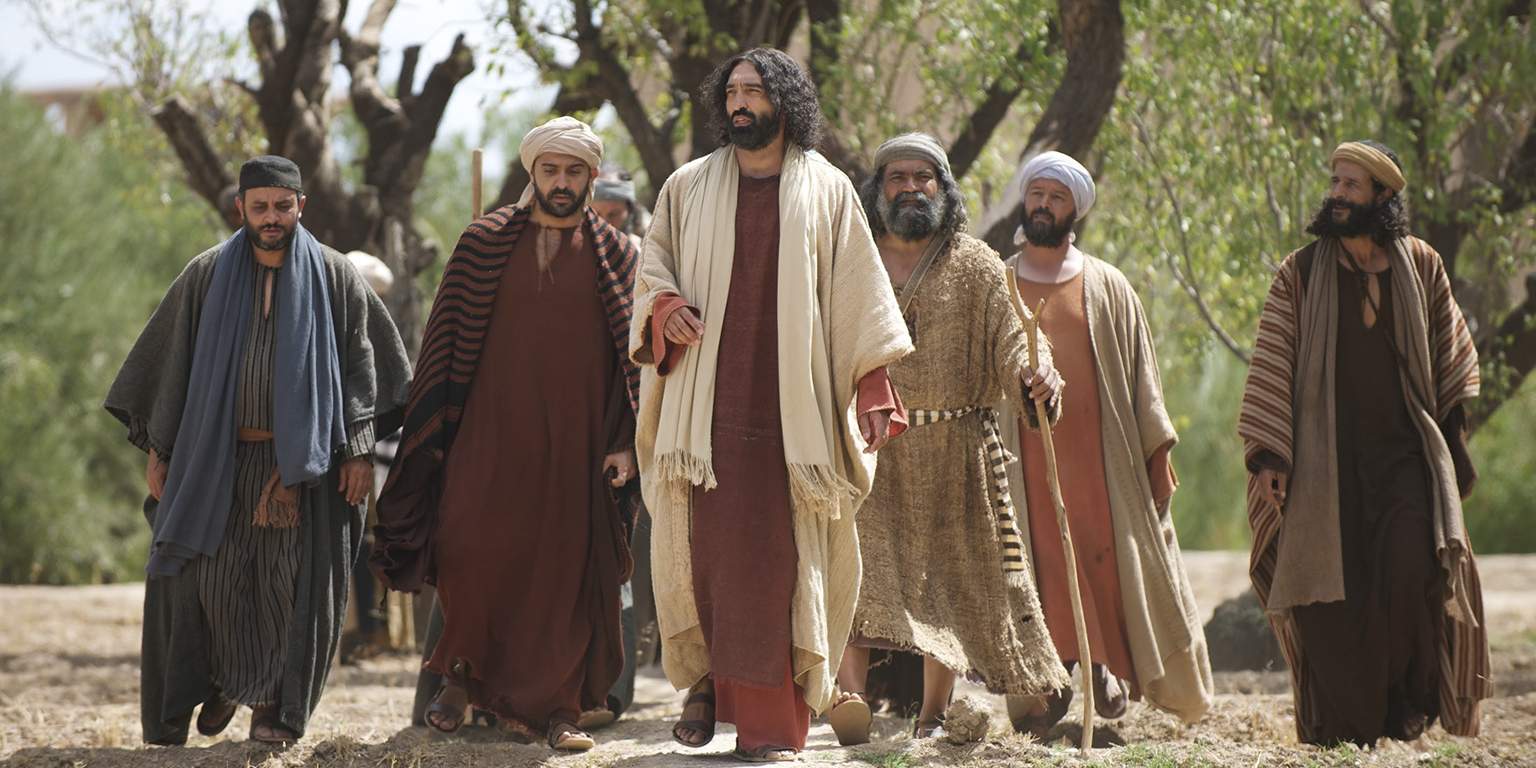 |
All believers have a ministry, but we call it “public ministry” when believers ask or call someone to serve them.
To understand what public ministry is and why it matters in the world, it might help to start with a real-life example: St. Matthew’s account of his own call into the public ministry (Matthew 9:9-13).
The calling of Matthew
Jesus based his early ministry in the Galilean town of Capernaum. Matthew was a Jewish tax collector in that same town. You might picture him sitting in his tax booth, admiring the impressive stacks of coins on his counting table, and making careful notes in his ledgers, when an unexpected visitor interrupts. He thinks, What? A rabbi? Here? Can’t be. They all curse this place. He rubs his eyes and reopens them, only to recognize that rabbi—it’s the one whose words and wonders draw crowds and drive Pharisees crazy. But what business does Jesus have here?
Jesus isn’t alone. Behind him, as if afraid to follow him closer, is the cadre of recruits he’d been gathering. They are an odd bunch, including at least one of those radical revolutionary Zealots and several others who mostly just smell like fish. But none of Jesus’ recruits raise more eyebrows than Matthew—or Levi, as he is sometimes called.
People had other names for him. They can’t be printed here, but they all said the same thing: “That guy is bad news!” It wasn’t just that people didn’t like paying taxes. It was where those taxes went—to Rome, the heart of an empire that sprawled from Judea all the way to Britain. To ensure control over all those resentful subjects, Rome maintained standing armies across the empire, ready to march at the first hint of rebellion to crush it with brutal, bloody efficiency. All that force wasn’t cheap. Where did the revenue come from? From the conquered peoples themselves, of course.
When Matthew collected taxes, he was compelling his own people to pay for the privilege of being oppressed by Rome. His own tacked-on fees could be as much as he wanted—he had all the muscle of Rome behind him. There was nothing anyone could do but curse him behind his back as a thieving, thuggish traitor. Jews called tax collectors the vilest of sinners. They barred them from their synagogues. Their rabbis considered them lost causes, beyond repentance or salvation.
Yet here is Jesus calling to Matthew: “Follow me.” Without hesitation, he stands up, follows Jesus away from his booth, and never looks back. Those two words from Jesus tell Matthew that even he is not a lost cause. But how can this be?
He won’t have to wait long to find out. Later that night, at Matthew’s house, the Pharisees are scandalized to see Jesus hanging out with Matthew’s friends—a Who’s Who of lost souls. “Why does your teacher eat with tax collectors and sinners?” they demand (9:11). Jesus’ reply? “It is not the healthy who need a doctor, but the sick. . . . For I have not come to call the righteous, but sinners” (9:12,13).
Matthew had his answer, and it’s not what he expected: He truly is a lost cause—as lost as anyone ever could be. Yet the bad news of Matthew was nothing compared to the good news of Jesus. If Jesus’ sacrificial mercy and forgiveness could reach Matthew, it could reach anyone. Celebrating that gospel and reaching anyone and everyone with the good news that had reached him was what the rest of Matthew’s life would be.
What was true for Matthew is true for us and for all believers. When we have been called by the gospel, it naturally becomes our calling to share it individually wherever God has placed us in life.

The start of public ministry
This also raises a question: If this gospel ministry belongs to all believers, why do some have special titles like pastor, teacher, staff minister, missionary, or principal? God calls some of his people to another form of ministry. We call it public ministry whenever someone serves as a public representative of God’s people—usually a specific group of people in a specific place like a congregation or a school.
This is not merely a human arrangement. God himself calls people into public ministry. Jesus did this in his ministry. Many people followed him as disciples. But for Matthew and 11 other disciples, Jesus made it clear that he had a special calling for them. He made them eyewitnesses of everything he said and did. He was constantly teaching, training, testing them.
All the while, Jesus knew that one day, soon after his death and resurrection, he would send all his disciples into the world to “make disciples of all nations.” These 12 would be ready to stand as leaders of this band of believers and to serve them as public ministers.
Before the New Testament was completed, they would teach them the very words they had heard Jesus speak. They would lead them in seeking the lost with their eyewitness testimony. They would baptize the new believers and administer the Lord’s Supper. They were called apostles, “sent-out ones.” Theirs was a public ministry in every way. But the Apostolic Age ended when the Lord called these faithful servants home.
Why public ministry matters
What if public ministry itself ended when the apostles were gone? Without called workers administering the means of grace on behalf of God’s people—without pastors, teachers, principals, missionaries—what would the church look like today? Forget two thousand years of church history. Just try to imagine your church.
- Who would preach? Preach what? Teach what? Who would be qualified?
- Who would baptize? Everyone? All at once?
- Who would administer the Lord’s Supper?
- How could Christian schools operate—on any level?
- Who would carry the gospel to other peoples and countries?
- Who would care about the sick, the straying, the dying?
- If all these are always everyone’s responsibility, are they finally anyone’s responsibility?
Think about that for a bit. It’s hard to imagine, isn’t it? There is a reason for the public ministry. It’s just that instead of Jesus calling them directly, as he did Matthew and the rest of the Twelve, he simply began to call them through his church—the believers in one area.
He still calls today. We need called workers as much as we have ever needed them to fill our pulpits and teach in our classrooms. Who will they be? Do we know? Did anyone know that Matthew would become St. Matthew?
Yes, there was One who knew. The Voice that called Matthew did not fade when Jesus vanished into the clouds on the day of his ascension. That Voice speaks wherever his good news is preached and taught. What could possibly matter more?
Author: Michael J. Borgwardt
Volume 107, Number 06
Issue: June 2020







